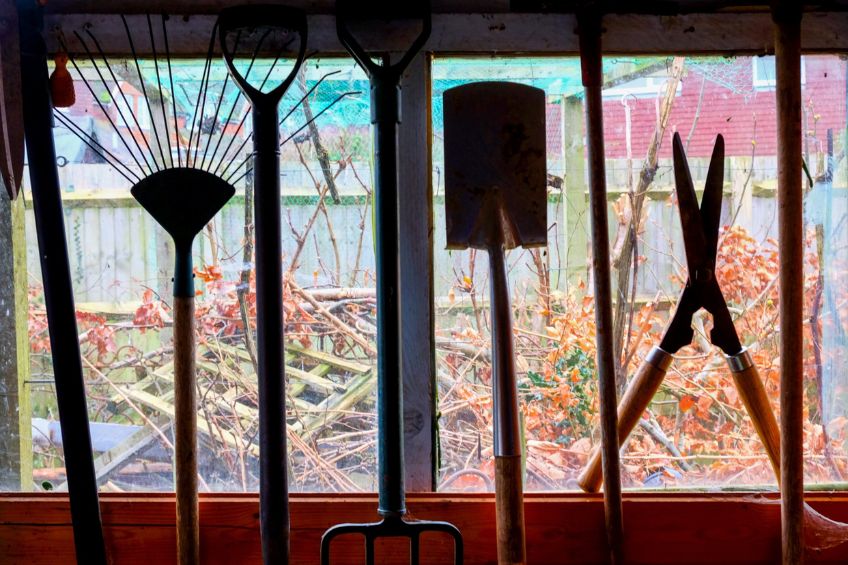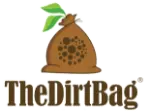When winter approaches, Utah homeowners, landscapers, and gardeners must ensure that landscaping materials are stored properly to protect their quality and extend their usability. Cold temperatures, moisture, and fluctuating conditions can impact everything from soil to mulch to tools. Following these best practices can help preserve landscaping supplies through the colder months, allowing for a seamless transition back to projects in the spring.

Store Mulch and Soil to Prevent Freezing
Cold temperatures can cause mulch and soil to become compacted or even frozen, making them hard to work with when it’s time to use them. To avoid this, it’s beneficial to:
- Store mulch and soil in a dry, sheltered location, such as a garage or shed. Keeping them off the ground with pallets can also help prevent moisture from seeping in.
- Use tarps or plastic covers to protect open bags or bulk material stored outdoors. As noted by Southern Living, organic materials like mulch benefit from insulation, which can help maintain moisture levels while preventing extreme temperature changes from affecting their quality.
Protect Pavers and Stones from Freeze-Thaw Cycles
Freeze-thaw cycles can be tough on hardscaping materials, especially in climates like Utah’s, where temperatures can fluctuate rapidly. Concrete, pavers, and natural stones are prone to cracking if moisture enters and then freezes. To protect these materials:
- Seal pavers and stones with a high-quality sealant before winter to create a moisture barrier. This is a proactive step to reduce the risk of damage, especially in regions with high winter precipitation.
- Store smaller, unused stones and pavers in a dry place, if possible. For larger materials, covering them with a durable tarp and elevating them slightly off the ground can prevent water pooling around them, which is particularly beneficial when dealing with freezing temperatures.
Store Fertilizers and Other Chemicals Safely
Cold can render certain landscaping chemicals, such as fertilizers and herbicides, ineffective if they aren’t stored correctly. Additionally, freezing can cause containers to crack, leading to spills and waste. To keep these products in good condition:
- Store fertilizers, herbicides, and similar products in a dry, enclosed space that remains above freezing. Avoid placing them directly on concrete, as cold from the ground can seep in and affect the products.
- Label all containers clearly and keep them sealed tightly to prevent moisture from affecting the chemical composition. Mulhall’s notes that moisture is especially damaging to these materials, making sealed storage essential.
Cover or Bring in Tools and Equipment
Metal tools, hoses, and other equipment left outside are vulnerable to rust, cracking, and other damage during winter. Proper storage of these items includes:
- Cleaning tools and applying a light layer of oil to prevent rust. Store them in a dry location, like a shed or garage, to prevent freezing and moisture buildup.
- Draining hoses completely before storing them indoors or coiling them in a sheltered area to prevent them from cracking. Winterizing irrigation systems and other water-related equipment in the fall can also prevent issues when temperatures drop.
Find Quality Landscaping Products from The Dirt Bag
For those looking to enhance their landscaping projects, The Dirt Bag provides top-quality soil, mulch, compost, and other materials—available for easy delivery across Northern Utah. Whether you’re winter-proofing your landscape or preparing for spring, their high-grade products make it easy to keep your garden healthy and beautiful all year round.


